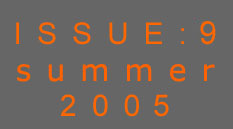
Community waste management: an EC-funded initiative

What is COWAM 2?
The COWAM (Community Waste Management) project
is a European-Commission funded initiative that began back in
2000 with EU money from the EU’s Fifth Framework Programme
for research (FP5). The initial COWAM project covered the period
2000-2003. COWAM 2 took over the baton in 2003 and will continue
until 2006. The work of COWAM 2 centres on input from the 5 Work
Packages (WPs). Each WP covers a different specialized area of
research. These areas are as follows:
-
Implementing local democracy and participatory methods
-
Influencing local actors involved in the national decision-making
process
-
The Quality of decision-making processes
-
Long term governance
-
Integration and knowledge management
The main objective of COWAM 2 is to find mechanisms
for involving local communities more in the decision-making process
that determines where waste management plants should be sited.
The COWAM 2 team’s work has been carried out into a number
of diverse fields of research that look at both technical and
societal issues. Among the many areas of research currently under
the microscope are information and communication campaigns, stakeholder
dialogue, local governance, financing and compensation and ethical
guidelines for governing the decision-making process.
Report on the July seminar
The Annual Seminar of COWAM 2 took place in Ljubljana,
on 6+7 July 2005. 140 delegates from 10 countries congregated
in the pretty Slovenian capital to discuss a range of important
topics related to increasing public involvement in the selection
process for locating future waste management sites.
The first Plenary Session on Day 1 of the Annual
Seminar was devoted to an analysis of the situation in the host
country. Slovenia has one NPP, at Krsko, one research reactor
and one uranium mine that is soon to be closed. The NPP is a joint
venture run with neighbouring Croatia. The session kicked off
with an opening address from Slovenia’s Economy Minister,
Andrej Vizjak.
He stressed the importance of gaining public confidence and consent
for local waste management projects and of adopting a clear methodological
approach to site location as a means of achieving public acceptance.
The highlight of Day 2 was the presentation to
conference of the WPs’ status reports. Each WP presented
the latest state of play with its work, delivered fresh data and
fielded questions from the conference floor. The current situation
can be summarized as follows:
WP1 is focusing on maximizing the effectiveness
of local stakeholder committees, assessing tools for informing
and educating citizens more effectively and measuring levels of
local support.
WP2 is studying ways of establishing best practices
for local actors to play a full role in the decision-making process,
more specifically by setting up stakeholder reference groups (SRGs)
that meet and dialogue regularly with local and national authorities.
These SRGs involve stakeholders at every stage of the process.
WP3 is concentrating on analyzng how to promote
improvements in the quality of the decision-making process. It
gives practical recommendations on how to design and implement
a “robust” decision-making process and on how to involve
stakeholders better at every stage of that process.
WP4 has developed, as part of its analysis of
long term governance issues, a set of ethical guidelines that
should underpin how everyone involved contributes to the process.
The guidelines that it has identified are responsibility, justice
and democracy. It also reported on its research into financing
systems, which takes account of socio-economic factors and analyzes
related issues like benefit sharing and compensation.
Finally, WP5 is concentrating on integrating
the work of all the WPs so that the COWAM 2 end product –
primarily the Final Report and Recommendations that it will deliver
in July 2006 - accurately reflects the work done by the WP teams
and the synergies that exist between the various study fields.
The presentation of WP5 served as a prelude to
the last Plenary Session, which was devoted to analysis of the
national delegations’ status reports (“National Insights”).
Conclusions
The COWAM 2 Annual Seminar highlighted the problems
and successes that the project has encountered so far. The results
vary greatly from country to country because each one has a different
stakeholder culture and tradition for local participation in decision-making.
Predicting how much improved governance will help more waste management
sites to be built is difficult to do. Across Europe, the COWAM
picture is mixed one, with both positive and negative. However
in spite of these problems, the COWAM 2 project has been a very
useful exercise. It has helped focus the mind of all parties involved
on the importance of gaining the acceptance and support of local
populations before building a new waste management site. It has
helped all parties to acquire the necessary governance skills
and should, hopefully, deliver a positive end result. The Final
Report will tell us more about how exactly successful it has been.
For more details on the work of the COWAM 2 group, consult the
dedicated website at: www.cowam.org
|







